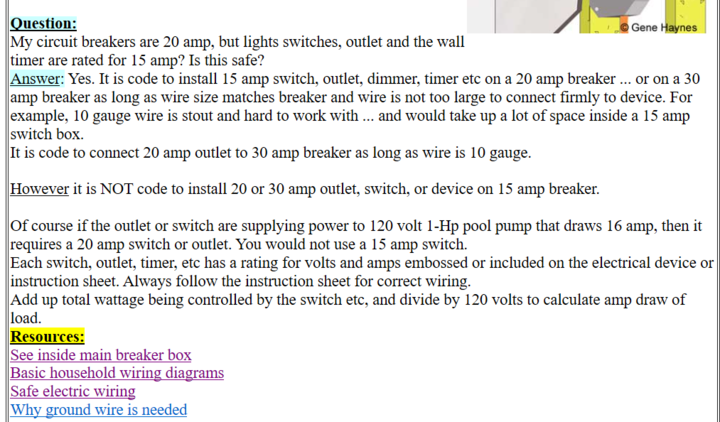john in la
Well-known Member
Reading the post below about how code allows using 1 side of a 220 breaker to run a 110 circuit got me to thinking.
So answer this code question...?
How can electric code allow you to put a 15 amp switch/outlet on a 20 amp breaker as long as you use a 20 amp (12 gauge) wire??
BUT....
It is not code to put a 20 amp switch/outlet on a 15 amp breaker.
That seems backwards. Seems to me the breaker should be the smallest amp rating of the circuit so it protects everything in the circuit.

So answer this code question...?
How can electric code allow you to put a 15 amp switch/outlet on a 20 amp breaker as long as you use a 20 amp (12 gauge) wire??
BUT....
It is not code to put a 20 amp switch/outlet on a 15 amp breaker.
That seems backwards. Seems to me the breaker should be the smallest amp rating of the circuit so it protects everything in the circuit.


